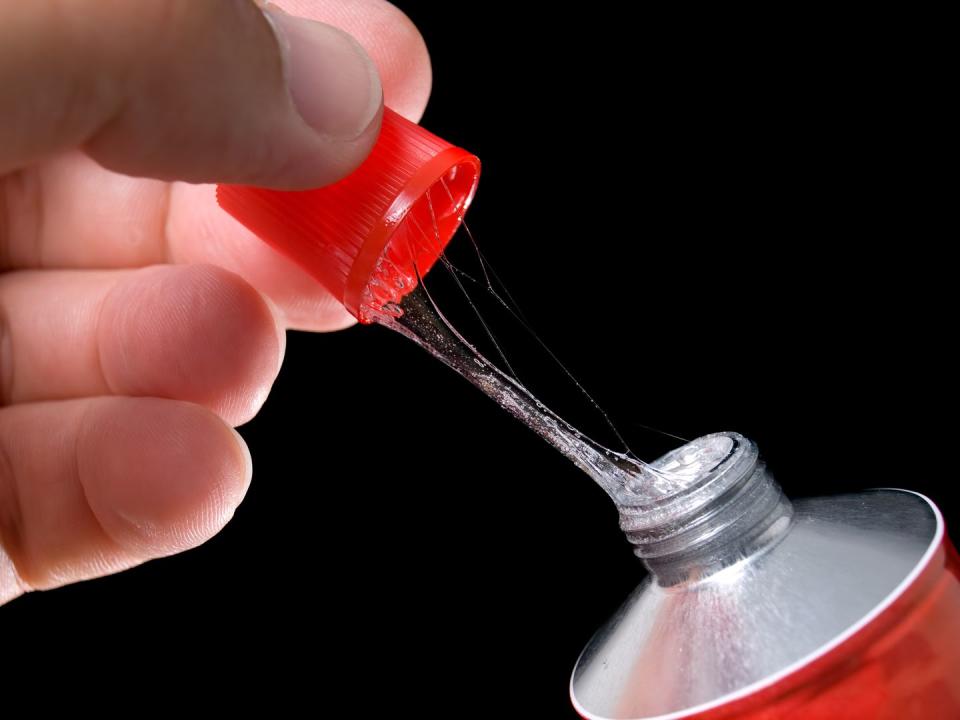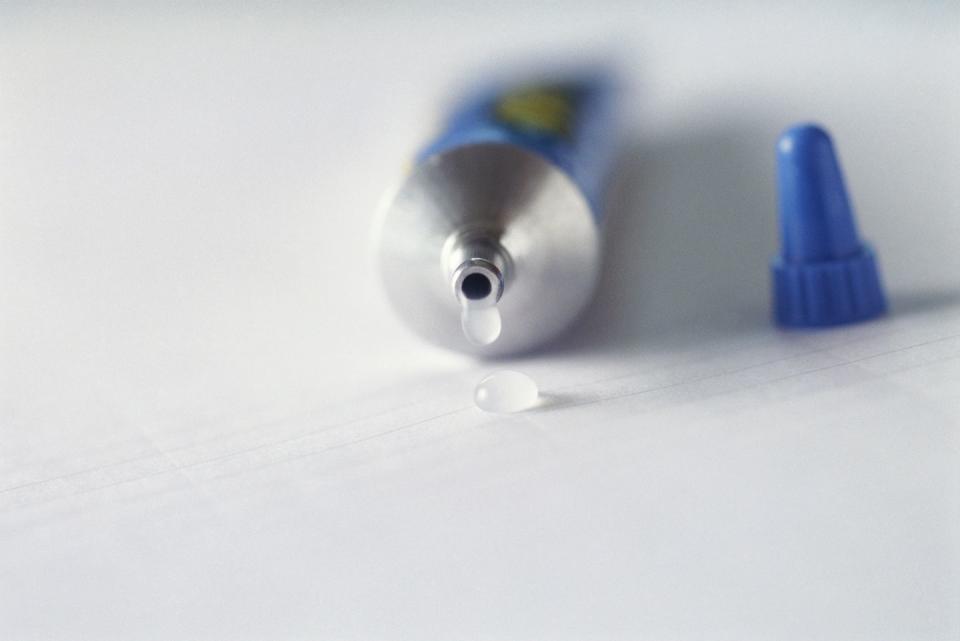She Accidentally Used Gorilla Glue to Style Her Hair. It Didn't Go Well.
A woman on TikTok put Gorilla Glue in her hair, and it's been stuck in one style for a month.
People on Twitter are trying to figure out how to help her. Even Gorilla Glue has offered a solution.
Sadly, we can't help in this specific situation, but we can tell you how to remove Super Glue.
Tessica Brown has been in a bit of a sticky situation for the past month.
As she recently confessed on TikTok, Brown usually concludes her daily hair regimen by applying some Got 2b Glued styling spray as a finishing touch. But when her bottle recently ran out, she grabbed what seemed like the next best thing to slick down her hair: Gorilla Glue spray adhesive.
➡ Join Pop Mech Pro and get exclusive answers to your burning science questions.
"Bad, bad, bad idea," she admitted in the instantly viral video below. Turns out the Gorilla Glue worked exactly as advertised, forming a "clear, permanent bond that is moisture-resistant and can be used on projects both indoors and out," according to Gorilla Glue's website.
This woman put gorilla glue in her hair and now it’s stuck in this one style 😭 pic.twitter.com/521Yv95eYc
— Raven Darkhölme (@LeBlossommm) February 4, 2021
Now, Brown's hair has been stuck in the same style ever since—even after she washed it 15 times. Whoops.
The good people of the internet have been trying to help Brown fix her mistake, and even Gorilla Glue pitched in with solid advice:
Gorilla Glue sent her a tweet! I hope it worked!! pic.twitter.com/EiYXmywFkH
— CSILLA (@csillagwilla) February 4, 2021
We're staying posted to see if Gorilla Glue's tips work, and if Brown can undo the very embarrassing—and, okay, kind of hilarious—blunder. And while we unfortunately can't offer help with this specific predicament, we can provide some expertise when it comes to best glue practices—namely, how to remove Super Glue.
The instant-bond nature of Super Glue (cyanoacrylate glue) has made it the go-to glue for quickly fixing virtually any broken, cracked, separated, or loose part.
Super Glue dries crystal clear almost instantaneously and forms an incredibly strong bond. However, the very property that makes Super Glue special—its ability to dry in seconds—is also its biggest drawback: If you accidentally get Super Glue on your fingers or mistakenly drip some onto an unintended surface, it dries so darn quickly, there’s no time to wipe it off.
So, here are some tips and techniques for removing Super Glue from skin and from a few different smooth surfaces. Be aware, however, that no single method works every time, so you’ll likely have to try two or more techniques to remove unwanted Super Glue.
The Stuff You'll Need to Remove Super Glue
Removing Glue From Skin

When Super Glue dries, it forms a hard film or shell. If you get some on your skin, you might be able to just peel it off. Start by soaking the glued section of skin in warm, soapy water for 10 minutes or so. If you can’t completely submerge the glued skin, cover it with a warm, wet, soapy cloth.
Next, stretch the skin really tight; you may need a friend to help with this part. Then, work your fingernail under the edge of the film of glue and carefully peel it off. If you can’t get your nail underneath, try using tweezers or, if you're extra careful, a pocketknife.
If warm, soapy water doesn’t work, try one of these three methods:
Make a poultice by mixing together equal parts baking soda and coconut oil. Smear the thick mixture over the glued area and wait at least 10 minutes. Wipe off the poultice and then try peeling up the glue.
Mix water and table salt together to form a thick paste. Continuously rub the paste into your skin for a minute or two. The salt will act as an abrasive and scrub off the glue.
Cover the glue with a thick coating of petroleum jelly. Or, soak the glued section of skin in olive oil. Wait about 20 minutes, then scrape off the glue with a pocketknife or putty knife.
If you accidentally glue two fingers together, try dissolving the glue with a little acetone or nail polish remover (which essentially is acetone). Pour a little acetone directly onto the glue, wait 20 seconds, then slowly pull your fingers apart. If the glue bond doesn’t loosen or release, stop and reapply more acetone. Don’t continue pulling or you might rip the skin.
Acetone evaporates very quickly, so you might need to reapply several times, and if you don’t have any acetone, substitute mineral spirits (a.k.a.: paint thinner), which is a little milder and doesn’t evaporate as quickly, but it’s not as effective at dissolving Super Glue as acetone.
Removing Glue From Smooth Surfaces

Many of the techniques described above can also be used to remove Super Glue from smooth, hard surfaces, such as wood, glass, stone and metal. And, as mentioned earlier, acetone does a very good job of dissolving Super Glue. But be careful: acetone will also dissolve clear coat finishes, including polyurethane, right off of finished wood surfaces, such as tabletops, cabinets, and flooring.
For a considerably less-aggressive method, soak the glue with lemon juice for 10 minutes or so. The citrus acid in the juice will help soften the glue. Then, scrape off the glue with a pocketknife or putty knife—be careful not to scratch the surface. If you don’t have any lemon juice, substitute rubbing alcohol or mineral oil.
Pour some full-strength liquid dish soap on the glue, then cover it with plastic food wrap. Wait an hour or so, then scrape off the glue. The soap won’t adversely affect most hard surfaces, but be aware that it might discolor a finished wood surface.
If none of the mentioned techniques work, you’ll have to resort to sanding off the glue, starting with 120-grit sandpaper. If that doesn’t cut through the glue, try 100-grit or even 80-grit sandpaper. (The lower the number, the coarser the sandpaper.) Sanding will eventually remove the glue, but you’ll have to refinish the surface to conceal the sanding marks.
As a last-ditch effort, you can try removing Super Glue with a paint scraper. Get the type of scraper that has tungsten-carbide blades, which stay sharper longer and cut much quicker than high-speed steel blades. Just be careful not to scratch or gouge the surface.
You Might Also Like

 money
money 